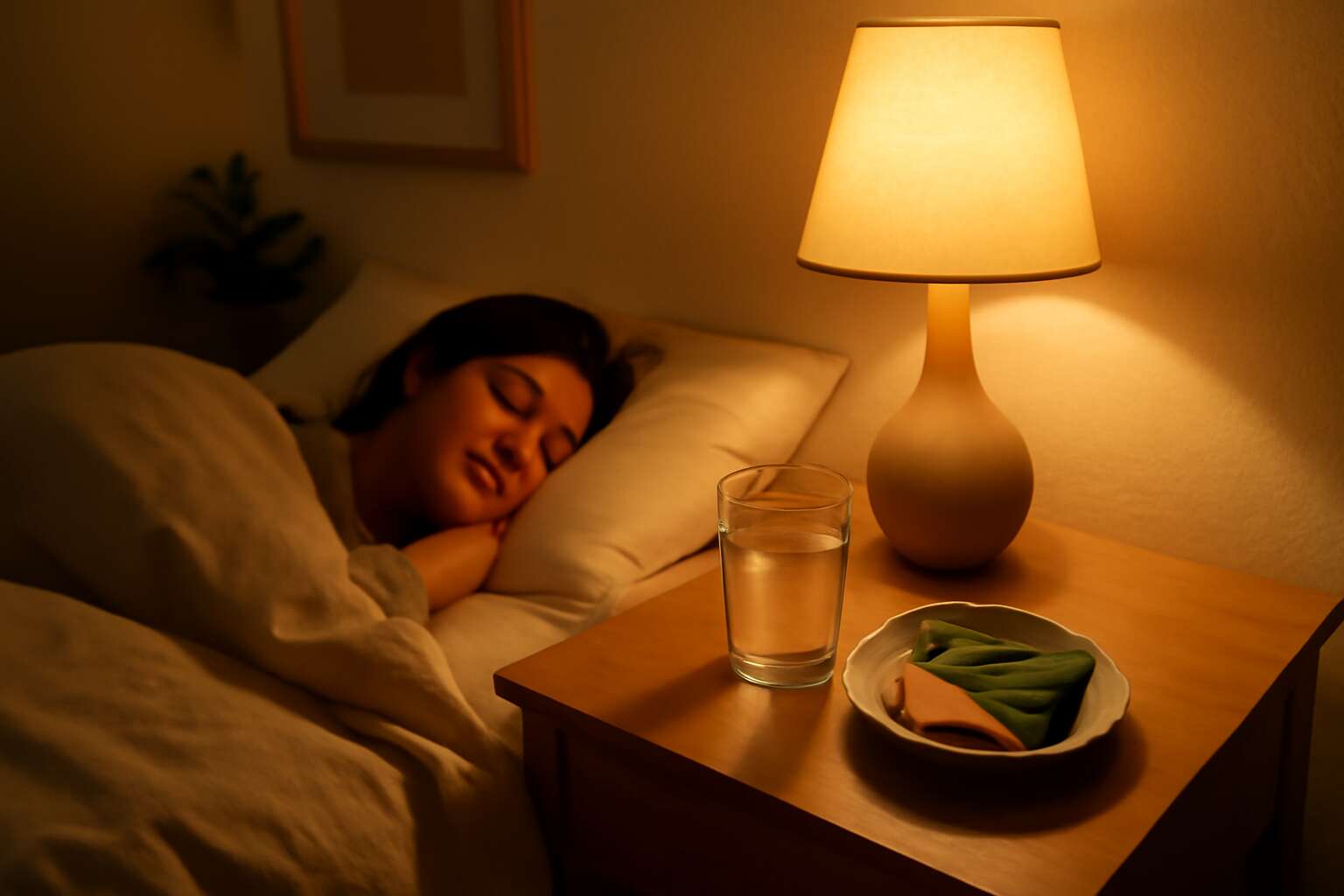Understanding Low Carb Diets and Sleep Patterns
Overview of Low Carb Diets – Principles and common types of low carb diets
Understanding the nuances of low carb diets reveals a fascinating interplay between nutrition and sleep patterns. These diets, celebrated for their role in weight management and metabolic health, operate on the principle of significantly reducing carbohydrate intake to shift the body into a state of ketosis. This metabolic shift can influence sleep, sometimes leading to low carb diet insomnia. While many embrace the benefits of low carb diets, such as increased energy and mental clarity, others report disrupted sleep cycles that leave them tossing and turning at night.
There are several common types of low carb diets, each with distinct principles but united by the goal of minimizing carbohydrate consumption. The ketogenic diet, for example, emphasizes high fat and moderate protein intake, pushing the body into ketosis. In contrast, the Atkins diet starts with very low carbs and gradually reintroduces them. Awareness of these variations is crucial, as the specific approach may significantly impact sleep quality. For some, the initial phase of these diets triggers low carb diet insomnia, an unsettling barrier to sustained health benefits and well-being.
How Low Carb Diets Affect Sleep – Physiological changes and potential impacts on sleep quality
When embarking on a low carb diet, the body undergoes a remarkable transformation that can influence sleep patterns in unexpected ways. As carbohydrate intake diminishes, the body shifts from relying on glucose to burning fat for fuel, a process known as ketosis. This metabolic switch is often accompanied by hormonal changes, particularly in insulin and cortisol levels, which can disrupt the natural sleep-wake cycle. Many individuals report experiencing low carb diet insomnia during the initial phases of their dietary journey, a phenomenon linked to these physiological adjustments.
Moreover, the reduction of carbs can lead to decreased serotonin production, a neurotransmitter integral to regulating sleep. The absence of this calming chemical may cause difficulty falling asleep or staying asleep throughout the night. For some, this translates into a restless sleep that leaves them feeling exhausted despite a full night’s rest. Recognizing how low carb diets influence sleep quality is essential, especially when considering the delicate balance between metabolic health and restorative rest.
Common Sleep Issues Linked to Low Carb Regimens – Insomnia, disruptions, and related symptoms
In the intricate dance of metabolic adaptation, low carb diets often bring about more than just weight loss—they can subtly alter sleep patterns, sometimes leading to persistent low carb diet insomnia. As the body transitions into ketosis, hormonal fluctuations—particularly in insulin and cortisol—can throw the natural sleep-wake cycle into disarray. Many individuals find themselves battling restless nights, a phenomenon that reveals the delicate interplay between diet and sleep quality.
Common sleep issues linked to low carb regimens extend beyond mere restlessness. Insomnia, frequent awakenings, and difficulty falling asleep are frequently reported by those navigating this dietary pathway. The reduction in serotonin levels, a neurotransmitter pivotal for calming the mind and promoting sleep, often exacerbates these disturbances. The result can be a cycle of exhaustion and frustration, as restful sleep becomes elusive despite efforts to maintain a healthy lifestyle.
- Disrupted hormone balance
- Altered neurotransmitter activity
- Physical symptoms like muscle cramps or headaches
Understanding these common symptoms helps shed light on why low carb diet insomnia occurs, especially during the earliest phases of dietary change. Recognizing the signs allows for a more conscious approach to balancing metabolic health and sleep, a pursuit vital in maintaining overall well-being in the pursuit of the American Dream’s promise of health and vitality.
Causes of Insomnia on a Low Carb Diet
Nutritional Deficiencies – Electrolyte imbalances, magnesium, and potassium deficits
Insomnia on a low carb diet isn’t just a matter of restless nights; it often hints at deeper nutritional imbalances lurking beneath the surface. One of the most insidious culprits is electrolyte imbalance, which can develop quietly as the body sheds excess water and electrolytes during carbohydrate restriction. This imbalance can interfere with nerve signaling and muscle function, making restful sleep elusive. Magnesium and potassium, essential minerals for relaxation and nerve health, are frequently depleted on a low carb diet, exacerbating sleep disturbances. When these minerals are low, it’s as if the body’s natural sleep regulators are thrown off-kilter, causing persistent wakefulness and tossing and turning.
Electrolyte deficiencies, especially magnesium, have been linked to increased cortisol levels—our stress hormone—further disrupting sleep cycles. A simple yet often overlooked aspect of low carb diet insomnia involves these subtle but impactful deficiencies. To combat this, some experts recommend monitoring electrolyte levels and supplementing with magnesium or potassium-rich foods. Without this balance, sleep quality can erode rapidly, turning what should be restorative nights into a nightly battle against restlessness.
- Electrolyte imbalances
- Magnesium deficits
- Potassium shortages
Altered Hormone Production – Cortisol, melatonin, and insulin fluctuations
Altered hormone production is a key cause of low carb diet insomnia. When carbohydrate intake drops sharply, it can disrupt the delicate balance of hormones like cortisol, melatonin, and insulin. Cortisol, our stress hormone, often spikes in response to low blood sugar levels, making it harder to fall asleep and stay asleep. Meanwhile, melatonin—the hormone responsible for regulating sleep-wake cycles—may become suppressed, throwing off your natural rhythm. This hormonal chaos can lead to persistent wakefulness and restless nights.
Furthermore, insulin fluctuations caused by reduced carbs can influence other hormones involved in sleep regulation. As the body adapts to a low carbohydrate intake, the production of these hormones can become erratic, worsening sleep issues. Some experts suggest that monitoring hormone levels and adjusting diet strategies may help restore balance. Without this hormonal equilibrium, the cycle of low carb diet insomnia continues, impacting overall well-being and daily performance.
Changes in Blood Sugar Levels – Hypoglycemia and hyperglycemia effects on sleep
When embarking on a low carb diet, the intricate dance of blood sugar levels often becomes unpredictable, leading to profound sleep disturbances. Fluctuations between hypoglycemia and hyperglycemia—conditions characterized by dangerously low or high blood sugar—can be silent catalysts for insomnia. In particular, hypoglycemia, which occurs when blood sugar dips too low, triggers a stress response that awakens the body, making restful sleep elusive. Conversely, hyperglycemia, or excess blood sugar, can cause frequent awakenings as the body struggles to regulate glucose, disturbing the sleep cycle.
This rollercoaster of blood sugar swings intensifies the challenge of achieving consistent rest. The body’s natural response to these shifts involves hormonal adjustments—primarily insulin and glucagon—yet, in the context of a low carb diet, these mechanisms can become erratic. The result? A persistent state of physiological chaos that leaves sleepers tossing and turning, caught in the whirlpool of low carb diet insomnia.
Ketosis and Sleep Disruption – How ketosis might interfere with sleep cycles
When the body enters ketosis on a low carb diet, sleep disruption can follow. Ketosis prompts a shift in energy production, forcing the body to burn fat instead of carbs. This metabolic change, while beneficial for weight loss, can interfere with sleep cycles. Many people report restless nights, vivid dreams, or difficulty falling asleep during this phase. The reason? Ketone production influences brain chemistry and hormone levels, particularly melatonin and cortisol. These fluctuations can disturb the natural sleep-wake cycle, contributing to low carb diet insomnia.
Additionally, ketosis can cause a state of heightened alertness in some individuals. This heightened state makes it harder to unwind at night. The body’s adaptation to using ketones instead of glucose may also lead to dehydration and electrolyte imbalances, which are known to impair sleep quality.
- Electrolyte imbalances
- Altered hormone production
- Increased cortisol levels
All these factors combine to create a perfect storm for sleep issues. For some, the transition into ketosis feels like an energizing boost; for others, it triggers persistent low carb diet insomnia. Recognizing these signs early can help manage sleep disruptions before they become chronic. The body’s response to ketosis is complex, and understanding it is key to overcoming sleep disturbances associated with low carb diets.
Caffeine and Fatigue Management – Role of stimulants and energy dips
In the relentless pursuit of health, many turn to low carb diets, only to find themselves battling an unexpected adversary—insomnia. The interplay between stimulants like caffeine and the body’s energy dips creates a delicate, yet tumultuous, balancing act. When fatigue sets in, some rely on caffeine to stay alert, unwittingly exacerbating sleep issues. The paradox is cruel: what energizes during the day can sabotage restful nights.
As the body adapts to a low carb diet, fluctuations in blood sugar levels become more pronounced. Hypoglycemia can induce a state of hyperarousal, making it difficult to unwind. This heightened alertness, coupled with the body’s altered hormone production—particularly increased cortisol—can turn sleep into a fleeting, elusive goal. For many, the cycle becomes a frustrating dance between exhaustion and wakefulness, deepening the grip of low carb diet insomnia.
- Relying on stimulants like caffeine may temporarily mask fatigue but ultimately disrupt circadian rhythms.
- Energy dips during ketosis can lead to a vicious cycle of fatigue, prompting increased caffeine intake.
- Electrolyte imbalances caused by low carbohydrate consumption further intensify feelings of exhaustion and restlessness.
Understanding how these factors intertwine reveals that managing low carb diet insomnia is less about suppressing symptoms and more about navigating the complex terrain of bodily adaptation. The subtle, yet profound, effects of caffeine and fatigue management are crucial in this ongoing internal struggle for balance.
Recognizing Symptoms of Low Carb Diet-Related Insomnia
Common Signs and Symptoms – Difficulty falling asleep, frequent awakenings, restless nights
Many individuals embarking on a low carb diet experience more than just dietary shifts; they may find themselves battling persistent sleep disturbances. Recognizing the symptoms of low carb diet insomnia can be challenging, especially when fatigue feels like a constant companion. Common signs include difficulty falling asleep, waking up multiple times during the night, and restless nights that leave you drained in the morning.
These sleep disruptions are often subtle at first, but over time, they can significantly affect daily functioning and overall well-being. If you notice a pattern of disrupted sleep that coincides with your low carb diet, it’s a telltale sign of low carb diet insomnia. Sometimes, these symptoms come with a sense of unease or heightened alertness, making it even more difficult to drift into restful slumber.
- Difficulty falling asleep
- Frequent awakenings during the night
- Restless, unsettled nights
Awareness of these signs is crucial, as they can be an early warning of underlying physiological changes triggered by the low carb lifestyle. Recognizing these symptoms allows you to address the root causes of low carb diet insomnia before they escalate into more severe sleep issues.
Long-term Effects – Chronic fatigue, mood disturbances, cognitive issues
Long-term effects of low carb diet insomnia can be insidious, creeping into your life like a shadow that refuses to lift. Persistent fatigue becomes a constant companion, draining your vitality and clouding your days with a fog that’s hard to shake. Many individuals find their mood unraveling, slipping into irritability or even depression, as sleep deprivation takes its toll on emotional resilience. Cognitive issues, such as difficulty concentrating and memory lapses, often follow—turning simple tasks into frustrating challenges.
The silent toll of low carb diet insomnia is often underestimated. As your body struggles to adapt, these symptoms may intensify, leading to a cascade of health concerns. Recognizing these long-term effects early can be crucial in preventing more serious health repercussions. For instance, the disruption of hormonal balance—particularly cortisol and melatonin—can exacerbate sleep issues, creating a vicious cycle that’s hard to break. In this intricate dance of physiology, the impact of low carb diet insomnia extends far beyond restless nights, weaving into the fabric of your overall health.
When to Seek Medical Advice – Indicators that warrant professional evaluation
Low carb diet insomnia can be more than just a fleeting inconvenience; it’s often a red flag waving wildly in the night. Recognizing the symptoms early is essential before your sleepless nights turn into a full-blown health saga. Persistent difficulty falling asleep, frequent awakenings, and a restless, unrefreshing night are telltale signs that your body is struggling to adapt to the low carb regime. Sometimes, you might feel like a zombie before the sun even rises—fatigue that no amount of coffee can shake off.
If these symptoms linger or worsen, it’s time to seek medical advice. Indicators that warrant a professional evaluation include severe mood swings, cognitive fog, or if sleep disruptions start affecting your daily functioning. Keep an eye out for:
- Sudden changes in mood or irritability
- Memory lapses or difficulty concentrating
- Unexplained fatigue despite adequate rest
Ignoring these signs can deepen the impact of low carb diet insomnia, turning a manageable issue into a chronic health concern. Don’t let sleep deprivation sneak past unnoticed—your body’s signals are louder than you think! When in doubt, a healthcare professional’s input can help decode whether your low carb diet insomnia is a passing phase or a sign of something more serious brewing beneath the surface.
Strategies to Mitigate Insomnia While Following a Low Carb Diet
Optimize Electrolyte Intake – Including magnesium, potassium, and sodium-rich foods
In the shadowy realm of low carb diet insomnia, the body’s delicate symphony of electrolytes often falters, leaving a restless melody in its wake. Optimizing electrolyte intake becomes a vital act, akin to tuning an instrument before a grand performance. Magnesium, potassium, and sodium are the silent sentinels guarding the gates of restful slumber, each playing a vital role in calming the nervous system and stabilizing blood pressure. Without them, the mind’s whispers turn into cacophonous echoes that disrupt the sacred cycle of sleep.
To restore harmony, consider incorporating magnesium-rich foods like leafy greens, nuts, and seeds, which serve as nature’s lullaby. Potassium can be sourced from avocados, tomatoes, and bananas—yes, even in moderation—helping to maintain cellular equilibrium. Sodium, often unfairly vilified, is essential in small amounts, found in seaweed and natural salts, to prevent cramping and dehydration. By balancing these elements, one can mitigate the insidious grasp of low carb diet insomnia, allowing the body’s natural rhythm to reclaim its throne.
Balance Macronutrients – Ensuring adequate carbs or cyclical keto approaches if suitable
Balancing macronutrients is crucial when combating low carb diet insomnia. While restricting carbs can improve health, too little can send your sleep into disarray. Incorporating adequate carbohydrates—whether through targeted or cyclical keto approaches—can help stabilize blood sugar and promote restful sleep. This strategy prevents hypoglycemia, a common culprit behind wakefulness during the night.
One effective method is to schedule small carbohydrate-rich meals in the evening, which can curb cortisol spikes and support melatonin production. For those on a low carb diet, adding a moderate portion of sweet potatoes, berries, or oats may be enough to bridge the gap. Remember, the goal is to strike a balance that sustains energy without disrupting ketosis or sleep quality.
- Assess your carbohydrate intake regularly to ensure it aligns with your sleep needs.
- Experiment with cyclical keto, alternating low and higher carb days, to find what works best.
- Focus on quality carbs like whole grains and vegetables to enhance nutrient absorption and sleep support.
Ultimately, managing the macronutrient mix can be a game changer in reducing low carb diet insomnia and restoring the body’s natural rhythm.
Establishing Sleep Hygiene – Consistent sleep schedules, calming bedtime routines
In a world obsessed with quick fixes and dietary trends, sleep often becomes an afterthought—yet the connection between low carb diet insomnia and overall well-being is undeniable. Many individuals on low carb diets find themselves battling restless nights, despite the promise of health benefits. Establishing effective sleep hygiene is crucial to break this cycle and restore your natural rhythm.
Consistent sleep schedules serve as a foundation, anchoring your body’s internal clock in a predictable pattern. Pairing this with calming bedtime routines—such as gentle stretches, reading, or mindfulness exercises—can signal to your brain that it’s time to wind down. For those following a low carb diet, creating a serene environment free of electronic distractions and maintaining a cool, dark bedroom can make a profound difference.
Moreover, incorporating a structured approach to sleep hygiene might include a simple yet powerful step: prioritizing regularity. Going to bed and waking up at the same time each day helps regulate melatonin production, which is often disrupted by low carb diet insomnia. Remember, your body’s internal clock doesn’t just respond to what you eat but also to your daily routines.
Incorporating Relaxation Techniques – Meditation, deep breathing, and mindfulness practices
Relaxation techniques can be a game-changer when it comes to mitigating low carb diet insomnia. The physiological stress of adjusting to a low carbohydrate intake often leaves many battling restless nights. Incorporating practices such as meditation, deep breathing, and mindfulness exercises can help soothe the nervous system and promote a more restful sleep. These methods are simple yet powerful, requiring only a few minutes each day to see significant benefits.
One effective approach is to create a nightly routine that involves focused breathing exercises or guided meditation. For example, diaphragmatic breathing—where you breathe deeply into your belly—can reduce cortisol levels and ease the transition into sleep. Mindfulness practices, such as body scans or gentle stretching, help disconnect the mind from racing thoughts that are common with low carb diet insomnia.
- Practice slow, deep breathing for at least five minutes before bed
- Use guided meditation apps to foster relaxation
- Incorporate mindfulness techniques to stay present and calm
By integrating these relaxation techniques into your evening routine, you can significantly reduce sleep disruptions caused by low carb diet insomnia. The key is consistency—making these practices a non-negotiable part of your nightly ritual can help reset your sleep cycle and restore the balance your body craves.
Monitoring Blood Sugar Levels – Using glucometers and adjusting diet accordingly
Monitoring blood sugar levels is a vital strategy for mitigating low carb diet insomnia. When your blood sugar fluctuates wildly, it can trigger sleepless nights, leaving you exhausted and frustrated. Using a glucometer regularly allows you to track these changes precisely and make informed adjustments to your diet. By maintaining stable blood glucose levels, you can reduce the risk of hypoglycemia or hyperglycemia, both of which interfere with restful sleep.
Adjusting your carbohydrate intake based on these readings can be a game-changer. For instance, if you notice dips in blood sugar overnight, incorporating a small, healthy carbohydrate snack before bed might help. Conversely, if your levels are consistently high, reducing carbs slightly or balancing your meals can promote better sleep.
A simple yet effective method involves keeping a sleep and blood sugar journal, helping you identify patterns and fine-tune your low carb diet to combat low carb diet insomnia. This personalized approach can restore the balance your body craves for a night of rejuvenating rest.
Supplementation and Natural Remedies – Melatonin, herbal teas, and other sleep aids
When battling low carb diet insomnia, sometimes a little natural magic can go a long way. Melatonin, the body’s own sleep hormone, is often heralded as the go-to supplement for those restless nights. A quick dose before bed might just help reset your sleep cycle, especially if ketosis has thrown your circadian rhythm out of whack. But don’t rely solely on synthetic solutions—herbal teas like chamomile, valerian root, or passionflower can soothe your nerves and promote restful slumber without the grogginess the next morning.
For an added edge, consider incorporating other sleep aids that are gentle and natural. Supplements like magnesium can help relax muscles and calm a racing mind, which is particularly helpful when low carb diet insomnia strikes. Meanwhile, a warm cup of herbal tea, infused with calming herbs, can serve as a comforting ritual that signals your body it’s time to wind down. Combining these remedies with good sleep hygiene creates a holistic approach to reclaiming the restful nights you deserve.
- Try a melatonin supplement to help regulate your sleep cycle.
- Enjoy soothing herbal teas like chamomile or valerian root before bedtime.
- Ensure your magnesium and potassium levels are sufficient to promote relaxation.
By blending these natural remedies and supplements, you can tame the low carb diet insomnia beast and drift into a peaceful, rejuvenating sleep—without sacrificing your dietary goals or your sanity.
Consulting Professionals for Sleep and Dietary Concerns
Dietitians and Nutritionists – Personalized dietary adjustments
Consulting professionals such as dietitians and nutritionists can be instrumental in addressing low carb diet insomnia. These experts possess the nuanced understanding necessary to tailor dietary plans that minimize sleep disruptions while maintaining nutritional adequacy. They can evaluate your unique physiological responses and recommend personalized dietary adjustments, ensuring your low carb diet doesn’t compromise your sleep quality.
In some cases, a comprehensive assessment may include monitoring electrolyte levels, as imbalances in magnesium and potassium are common culprits behind sleep disturbances linked to low carb diet insomnia. An experienced dietitian might suggest incorporating specific foods rich in these minerals or recommend suitable supplements to restore balance.
Furthermore, collaborating with healthcare professionals allows for a holistic approach—integrating sleep hygiene, blood sugar management, and hormonal balance. Such tailored guidance can help mitigate the sleep issues associated with low carb diets, fostering restful nights and supporting overall well-being.
Sleep Specialists – Diagnosing and treating underlying sleep disorders
When your low carb diet insomnia turns into a nocturnal saga, consulting sleep specialists might just be your best move. These professionals are adept at diagnosing underlying sleep disorders that could be masquerading as dietary woes. Sometimes, sleepless nights aren’t solely about what you eat but stem from complex sleep architecture disruptions that require expert intervention.
Sleep specialists employ a variety of diagnostic tools, including polysomnography and sleep questionnaires, to unravel the mystery. Their goal? To identify root causes—be it sleep apnea, restless leg syndrome, or other hidden culprits—that could be exacerbating your low carb diet insomnia. With targeted treatment plans, they can help restore your nightly peace, so you won’t have to count sheep until dawn.
In addition, some practitioners may recommend lifestyle modifications or even subtle medication adjustments, especially if hormonal fluctuations like cortisol and melatonin are fueling your sleep disturbances. Remember, persistent low carb diet insomnia deserves more than just over-the-counter remedies—professional diagnosis could be the key to reclaiming restful nights!
Medical Evaluation – Rule out other causes of insomnia
Persistent low carb diet insomnia can often be a sign that more than just dietary choices are at play. When sleepless nights become a recurring theme, consulting healthcare professionals for a comprehensive medical evaluation is essential. These specialists can systematically rule out other underlying causes of insomnia that may be masquerading as dietary issues, such as hormonal imbalances or sleep disorders. Identifying the true root cause requires a nuanced approach—sometimes what appears to be low carb diet insomnia is linked to deeper physiological or neurological factors.
Medical evaluations often involve detailed assessments, including sleep studies and blood tests, to uncover hidden contributors like sleep apnea or thyroid irregularities. In some cases, specialists might recommend a combination of lifestyle modifications and targeted treatments. For instance, balancing electrolyte intake or adjusting medication can significantly improve sleep quality. Recognizing the subtle signs—such as frequent awakenings or trouble falling asleep—can be the first step toward resolving the nocturnal unrest caused by low carb diet insomnia. Ensuring thorough professional guidance helps restore restful nights and supports overall well-being.




0 Comments